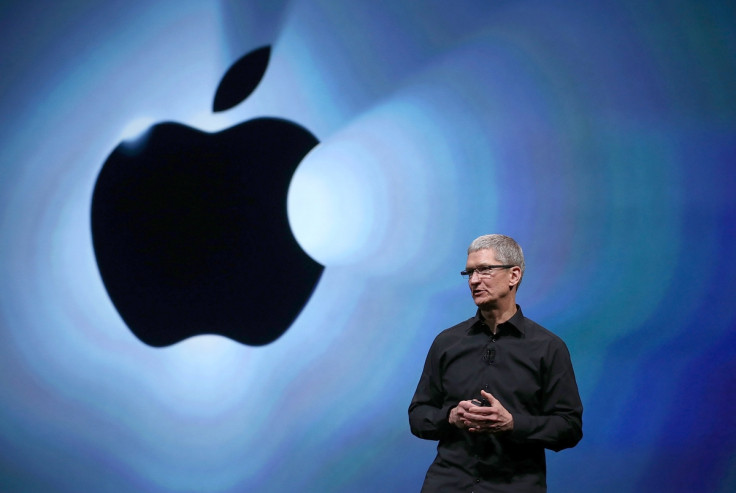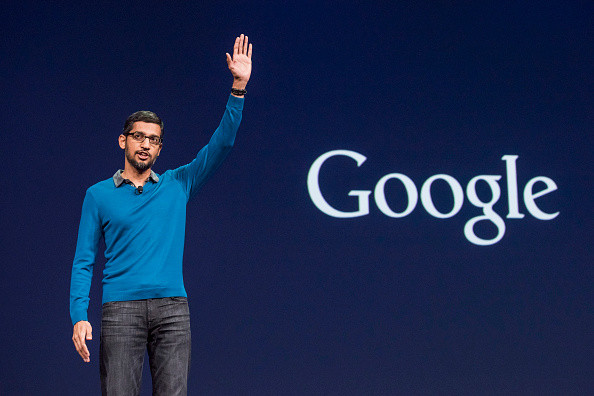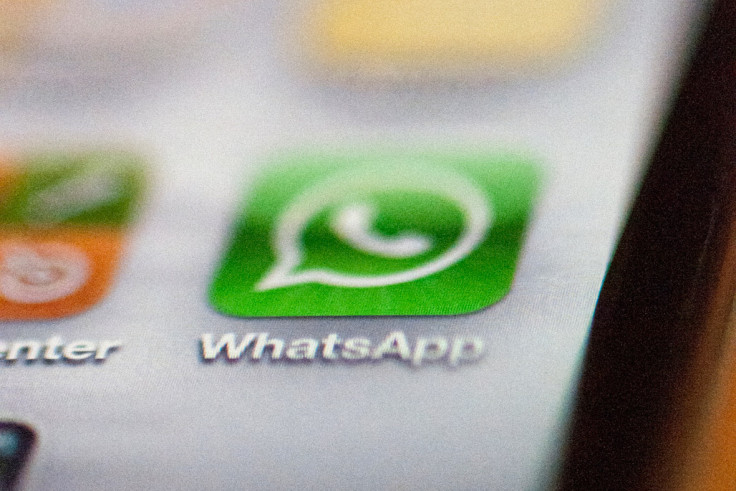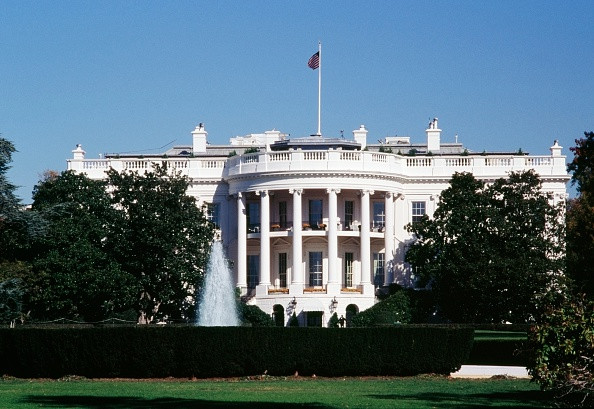Apple vs FBI: What is everyone saying in debate over iPhone encryption?

Ever since the Snowden disclosures three years ago, tension between the technology industry and US law enforcement has been palpable. With surveillance and privacy issues now ingrained into the public consciousness, major firms like Apple, Google, Microsoft and Facebook have all moved to bolster the security of their products and applications. The government, meanwhile, has publicly complained that strong encryption was hampering its ability to investigate terrorist activity.
Indeed, FBI director James Comey has long-argued that criminals are effectively 'going dark' because of the end-to-end encryption now deployed in popular messaging apps like iMessage, Snapchat and WhatsApp.
Yet in the wake of numerous terrorist atrocities over the past year, from Paris to San Bernardino, the debate has intensified. When an iPhone 5C was recovered among the possessions of Syed Rizwan Farook – who killed over a dozen people in California in an alleged Islamic State-inspired terror spree – the FBI was left crippled, unable to unlock the messages on his handset. Following a court order, Apple was told to help the FBI break into the phone to gain access to any stored data as well as conduct a forensic sweep of messages he sent in the run up to the murders.
In response, Apple CEO Tim Cook issued a scathing statement refusing to countenance the request, claiming that aiding FBI investigators would set a "dangerous precedent" for those offering privacy-based products. "The United States government has demanded that Apple take an unprecedented step which threatens the security of our customers," Cook said in a statement posted online. "We oppose this order, which has implications far beyond the legal case at hand. This moment calls for public discussion, and we want our customers and people around the country to understand what is at stake."
The reaction from other technology firms, security experts and privacy groups has been swift. IBTimes UK has gathered below all the major arguments and responses to the Apple/FBI controversy:

Google chief executive Sundar Pichai, who was initially criticised by Edward Snowden for failing to respond quickly enough, eventually addressed the issue in a series of tweets. "Forcing companies to enable hacking could compromise users' privacy," he asserted.
"We know that law enforcement and intelligence agencies face significant challenges in protecting the public against crime and terrorism. We build secure products to keep your information safe and we give law enforcement access to data based on valid legal orders. But that's wholly different than requiring companies to enable hacking of customer devices and data. [The case] could be a troubling precedent. Looking forward to a thoughtful and open discussion on this important issue."
1/5 Important post by @tim_cook. Forcing companies to enable hacking could compromise users’ privacy
— sundarpichai (@sundarpichai) February 17, 2016
Jan Koum, the creator of WhatsApp, now owned by Facebook, echoed the sentiment. "I have always admired Tim Cook for his stance on privacy and Apple's efforts to protect user data and couldn't agree more with everything said in their customer letter today. We must not allow this dangerous precedent to be set. Today our freedom and our liberty is at stake," he wrote in a Facebook post.

Information Technology Industry Council
The Information Technology Industry Council (ITI), a lobby group representing big-name firms such as Google, Facebook, Microsoft, Samsung and Blackberry, stated: "Our shared fight against terrorism must be grounded in principle. We worry about the broader implications both here and abroad of requiring technology companies to cooperate with governments to disable security features, or introduce security vulnerabilities into technologies. Our fight against terrorism is actually strengthened by the security tools and technologies created by the technology sector, so we must tread carefully given our shared goals of improving security, instead of creating insecurity."
Edward Snowden
Of course, it didn't take long for the privacy guru and whistleblower Edward Snowden to lend his support - via Twitter - to Apple in its fight against the US government. The former NSA spy now in self-imposed exile in Russia said the FBI was "creating a world where citizens rely on Apple to defend their rights, rather than the other way around".
The @FBI is creating a world where citizens rely on #Apple to defend their rights, rather than the other way around. https://t.co/vdjB6CuB7k
— Edward Snowden (@Snowden) February 17, 2016
Snowden also warned the FBI move could have damaging ramifications around the world.
The New York Times: @FBI's war on #Apple will aid China. https://t.co/URWamc702q pic.twitter.com/KnHDsWIENY
— Edward Snowden (@Snowden) February 17, 2016
Reform Government Surveillance
Reform Government Surveillance, which counts Microsoft, Google, AOL, Twitter and Dropbox as members took issue with the possibility of installing 'back-doors' into products, yet did not specifically refer to the Apple/FBI case. "It is extremely important to deter terrorists and criminals and to help law enforcement by processing legal orders for information in order to keep us all safe," it said in a statement. "But technology companies should not be required to build in back-doors to the technologies that keep their users' information secure. RGS companies remain committed to providing law enforcement with the help it needs while protecting the security of their customers and their customers' information."
EFF
San Francisco-based campaigning group, the Electronic Freedom Foundation (EFF), took issue with the notion that the US government is requesting a form of brand new code that 'eliminates key features of iPhone security'.
"Essentially, the government is asking Apple to create a master key so that it can open a single phone," wrote Deputy Executive Director Kurt Opsahl. "Once that master key is created, we're certain that our government will ask for it again and again, for other phones, and turn this power against any software or device that has the audacity to offer strong security.
"The US government wants us to trust that it won't misuse this power. But we can all imagine the myriad ways this new authority could be abused. Even if you trust the US government, once this master key is created, governments around the world will surely demand that Apple undermine the security of their citizens as well. EFF applauds Apple for standing up for real security and the rights of its customers. We have been fighting to protect encryption, and stop back-doors, for over 20 years."
The crowd is gathering in front of the SF Apple store to support encryption. https://t.co/GeTZifUkeq pic.twitter.com/g2BGQ7H0UA
— EFF (@EFF) February 18, 2016
Yet the EFF was only the first of many campaigning groups to wade into the debate.
Amnesty International told The Verge that Apple was well within its rights to push back against the US law enforcement. "The FBI's request, which would in practice require Apple to rewrite its operating system to weaken security protections, would set a very dangerous precedent," it said. "Such backdoors undermine everyone's security and threaten our right to privacy. Undermining mobile security not only puts our data at risk of being stolen by criminals, but also threatens privacy and freedom of expression at a time when [it] is a clear lack of checks and balances that prevent[s] authorities from abusing surveillance powers."
ACLU
Meanwhile, a statement from Alex Abdo, staff attorney with the ACLU Speech, Privacy, and Technology Project condemned the move by the FBI as being "unprecedented, unwise, and unlawful".
"The [US] constitution does not permit the government to force companies to hack into their customers' devices. Apple is free to offer a phone that stores information securely, and it must remain so if consumers are to retain any control over their private data. The government's request also risks setting a dangerous precedent. If the FBI can force Apple to hack into its customers' devices, then so too can every repressive regime in the rest of the world. Apple deserves praise for standing up for its right to offer secure devices to all of its customers," he said.
Former FBI agent EJ Hillbert
Yes, even some former-FBI agents have also waded into the debate - and not siding the parties you would expect.
As ex-FBI, I understand Nat Sec concerns but wrong approach to #Apple. FBI can build iOS work around themselves. Court case is political
— E.J. Hilbert (@ejhilbert) February 17, 2016
While the opposition stacked up quickly against the stance of the FBI, those in favour have been decidedly less vocal - and much smaller in numbers.
The White House

The White House, meanwhile, is supporting the stance of the FBI and has played down reports of needing 'back-door access' into the handset. "[What] the Department of Justice is requesting... [is] not asking Apple to redesign its product or to create a new back-door to one of their products. They're simply asking for something that would have an impact on this one device," claimed White House spokesman Josh Earnest in a recent press conference.
"Department of Justice and FBI investigators have been given a serious responsibility, which is to investigate an act of terrorism... they can count on the support of the White House and the president... we're going to support them as they do their important, independent work."
"We have to open it"
Adding to the FBI support was Republican presidential hopeful Donald Trump, who sided firmly with law enforcement on the issue. "To think that Apple won't allow us to get into her cellphone? Who do they think they are? No, we have to open it," Trump insisted during a recent interview on Fox.
While in the UK, as reported by the BBC, the family of Fusilier Lee Rigby, who was murdered in London in May 2013, said that Apple was "protecting a murderer's privacy at the cost of public safety".
Furthermore, New York Police Commissioner Bill Bratton said the issue needs to be quickly resolved. "We are increasingly blind for terrorism purposes and for general law enforcement purposes with the new devices and the continuing effort to make them even more secure against even court orders authorising law enforcement to have access," he asserted.
What is next in the encryption controversy?
It is clear that the numerous technology firms are not happy with any attempt to weaken the security of their products. If Apple holds out then the case will escalate to the Court of Appeal and finally to the Supreme Court. However, these cases, as the BBC points out, can often take several years.
© Copyright IBTimes 2025. All rights reserved.






















